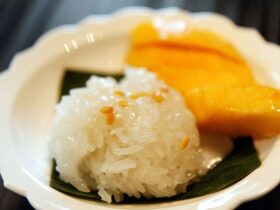The 1992 United States Men’s Basketball Team, colloquially known as “The Dream Team,” is largely regarded as one of the most prominent sports teams ever assembled. In prior Olympics, the United States was only able to send amateur players due to the Olympics’ ban on professional players.
That all changed at the 1992 Barcelona Olympics. For the first time, the United States was granted the ability to send the best of the best: a super team consisting of Michael Jordan, Magic Johnson, Karl Malone, Charles Barkley and Patrick Ewing. The Men’s team proceeded to steamroll every country in its wake, winning by a margin of 30 points or more every game.
The United States dominance in basketball at the Olympics has continued, winning six out of the last seven Olympic gold medals. However, the competition has risen substantially.
Team USA struggled in the buildup to the 2020 Tokyo Olympics. They lost an exhibition match to Nigeria 90-87 and Australia 91-83. In the first game of the 2020 Olympics, Team USA ended their 25-game Olympic win streak to France, losing 83-76. While the U.S. proceeded to win out and take home the gold in Tokyo, this grit-and-grind tournament signified that the United States is not the only country with elite basketball talent.
This talent has been showcased in the National Basketball Association (NBA). Three out of the five players selected for the 2022 All-NBA first team were foreigners: Nikola Jokić of Serbia (who also took home his second consecutive NBA MVP award) and Giannis Antetokounmpo of Greece and Luka Dončić of Slovenia. Other international all-team awardees included Cameroonians Joel Embiid (2nd team) and Pascal Siakam (3rd team).
The rise of international superstars in the NBA has translated into global popularity of basketball as a source of entertainment. But how much of this is attributed to the globalization of basketball and the increased presence of the sport in international markets? And does basketball possess an influence that extends beyond the sport itself?
Basketball Globally
While soccer remains king of the sports world globally, basketball has seen a steady rise in popularity over the years.
Countries such as the Philippines have a huge NBA fan base, with around 63% of the population saying they are fans of the game. Other major foreign basketball hubs include China (38%), Canada (30%), Argentina (28%) and Spain (27%).
Similarly, in countries like Brazil, Australia and the Philippines, NBA league pass, a subscription based service that allows consumers to watch all NBA games live, has risen in demand. As basketball in the U.S. becomes more accessible to foreign consumers, basketball’s popularity increases as a source of sports entertainment.
Basketball coverage, however, has expanded beyond the geographical boundaries of the United States.
Most recently, the 2022 EuroBasket tournament in Berlin concluded on Sept. 18 with Spain defeating France 88-76. This tournament brought together 24 European countries, countless NBA stars and a strong media presence.
A more global affair, the FIBA world cup is set to take place in August 2023. This multi-stage tourney will feature some quality competition for the United States, with countries such as Spain, Australia, Canada and Serbia all vying for the trophy.
As the rise of international basketball superstars continues, the FIBA tournament has become less dominated by Team USA and more intriguing to a global audience. In fact, Spain was crowned 2019 FIBA champions after the U.S. was stunned in the quarterfinals by France.
Basketball as a Business
In addition to improved accessibility of the sport in other countries, the NBA has continued to market basketball effectively abroad. This strategy has pushed basketball into the upper echelon of international sports.
The NBA continues to expand its NBA Global Games series, where NBA teams travel beyond the U.S. and Canada for a slate of preseason and regular season games. This year, the Atlanta Hawks and the Milwaukee Bucks will square off in the United Arab Emirates for a preseason game, followed by a regular season game in Paris, France between the Detroit Pistons and the Chicago Bulls. The NBA sees these games as a marketing opportunity to expand their brand and to promote basketball to areas outside of North America.
The NBA has also invested heavily in regions it believes to have long-term financial success in. The clearest example of this is in China.
Back in 2008, the NBA announced plans for a multibillion dollar project with China to design and operate basketball arenas in major cities in an effort to promote basketball and integrate the two markets. Today, the NBA has a $5 billion business in China and NBA owners are projected to have over $10 billion in investments in the country.
The NBA, in tandem with FIBA, have also invested heavily in Africa with the creation of the Basketball Africa League and over $1 billion in investment. The hope is to give young talent in Africa the opportunity to make it big in the NBA and make a dent in the otherwise dominant soccer economy in Africa.
The New Ping-Pong Diplomacy?
When news of Kobe Bryant’s passing came to light, millions of Americans were in mourning. This sadness however, was equally felt in a country he had touched for decades, through both his dynamic play style and his frequent visits: China.
Bryant was lauded by the Chinese population as a symbol of success, along with his patented “mamba-mentality,” with the People’s Daily publication noting after his death: “His fearless spirit of fighting, both on the court and in real life, is worth remembering.”
Bryant was very involved in China and essentially served as a de facto ambassador. He established the Kobe Bryant China fund which gave supplies to poor children, along with various basketball camps he held throughout the off season: an example of athlete diplomacy.
This type of athlete diplomacy goes both ways, with foreign players also making an impact as well. Yao Ming, the 7-foot-6 Hall of Famer from China, was widely regarded as the bridge that connected American and Chinese cultures through basketball during an extremely strenuous period of US-China relations. Plus, emerging stars from lesser-known countries such as Luka Dončić of Slovenia, Joel Embiid of Cameroon or Domantis Sabonis of Lithuania all bring their unique cultural upbringing and social media presence that connects American sports fans with people from all over the world.
However, this globalization is not without its critics or controversy, with many seeing the expansion of the NBA as a simultaneous politicization of the sport.
The most prominent example occurred back in Fall 2019, when Houston Rockets General Manager Daryl Morey induced a geopolitical salvo with a tweet supporting the Hong Kong independence movement. With China being the NBA’s largest international market, this was met with intense backlash from the Chinese community and government.
China’s CCTV suspended the broadcast of all NBA games as a result of the tweet. Many NBA executives also distanced themselves from Morey and his stance on the issue.
This apparent backtrack by both the NBA, and later Morey, were chastised by American political figures as “giving in” to Chinese censorship. Ted Cruz and Beto O’Rourke both criticized the NBA for prioritizing “profits over human rights.”
It seems that as basketball continues to spread globally, many of the political and soft power issues that arise with many subject matters will follow the sport as well. In addition, basketball, more than anything, is still a business that requires intense financial endeavors. While the political and economic ramifications of the globalization of basketball are still unclear, what is obvious is that basketball’s rise has created a unique community of millions of people around the world. It will continue to be an entertainment hub for years to come.







